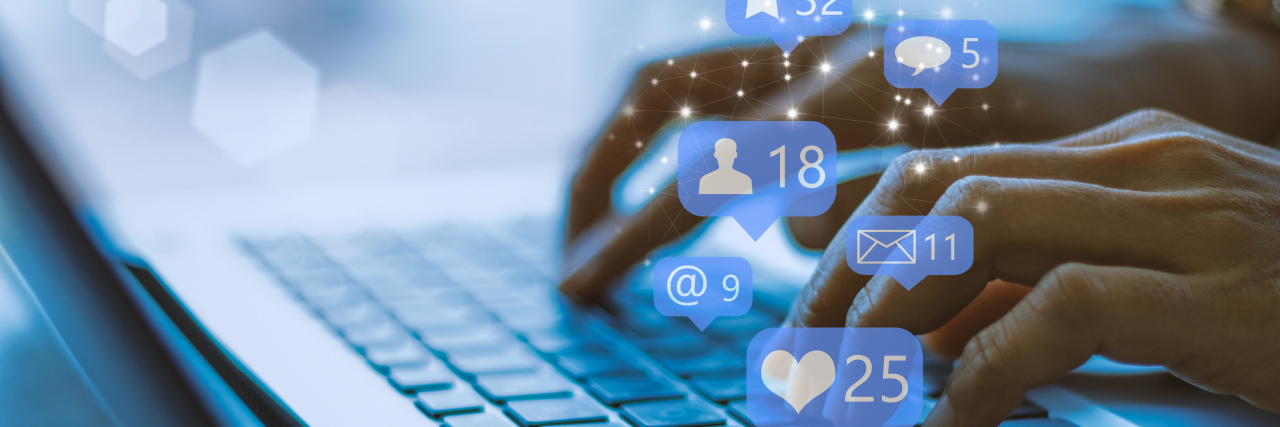How Social Media Monitoring Would Harm People on Disability Benefits
It’s 10 p.m. on a Sunday night, and I’ve just returned from Overlake Emergency, a 30-minute drive from my suburban Seattle home. Exhausted and hoping for a respite from the day’s stress, I log onto Facebook, where I am jolted by a New York Times headline: “On Disability and on Facebook? Uncle Sam Wants to Watch What You Post.” Finalizing a program to reduce “fraud and abuse” among Social Security Disability beneficiaries, the government may soon be monitoring recipients’ accounts on Facebook and Twitter.
While Uncle Sam does not regularly track the social media of those who receive SSDI, that could change by next year, and the Trump administration contends that it does not need Congressional approval to make revisions to current policy. The White House, which has been finalizing the new program with Social Security, believes it could discover a “treasure trove of information” about both those applying for and those currently meriting benefits.
Having received SSDI since 2014, I glance back at my Facebook profile, wondering what a faceless bureaucrat would make of my social media. My latest photographs include pictures posing with presidential candidate Pete Buttigeig, smiling with a puppet of myself holding a puppet of a puppet, and grinning at a gathering of political items collectors.
I do not appear “disabled” in any of these photos – I don’t use a wheelchair or mobility aid, I’m not on a ventilator and there are no selfies from a hospital bed. While I am open about my medical conditions, I try desperately not to descend into self-pity online. In my case, and presumably those of many other disability beneficiaries, it is simply healthier for me to discuss what I can do, rather than dwell on what I can’t do.
While the President campaigned not to cut Social Security, members of Donald Trump’s cabinet, including the Budget Director and acting Chief of Staff, Mick Mulvaney, have long evinced hostility for the program in general and for SSDI in particular.
Mulvaney was quoted by the Times as asking on CBS’s “Face the Nation” in 2017, “Do you really think that Social Security disability insurance is part of what people think of when they think of Social Security?” Mulvaney responded to his own rhetorical question, “I don’t think so. It’s the fastest growing program. It was — it grew tremendously under President Obama. It’s a very wasteful program, and we want to try and fix that.”
Contrary to Mulvaney’s contention, SSDI applications are actually plummeting, with a 29 percent decrease over the past year, down from almost three million in 2010.
While there will always be those who abuse the system, if the federal government monitors our online behavior, it is likely that at least some of us who are truly disabled will lose our benefits. On Facebook in particular, many of us desperately want to appear accomplished to the outside world. We list our volunteerism as our jobs and project the healthiest image of ourselves to those around us. Does that mean we are capable of full-time employment? Hardly. We know how stigmatizing receiving disability benefits can be, and many of us eschew our categorization like a squirrel fleeing from a dog. Not everyone needs to know the lurid details of our conditions, nor should we be forced to “perform disability” online for the edification of our government.
Personally speaking, it shouldn’t be incumbent upon me to divulge the details of Sunday’s ER visit with a general audience. Why would Facebook acquaintances need to know that two nasal swabs left me with bloody nostrils, nor that the flu was conspicuously absent? Should I be broadcasting that while chest x-rays came back negative for pneumonia, I still needed two Albuterol nebulizers, so exacerbated was my asthma from my virus? The reality is that I shouldn’t be compelled to make any of this information public on social media to prove disability to the government. After all, most of us share far more personal information with the feds as part of our disability proceedings than we ever would on Facebook or Twitter.
Truth be told, my disability hearing back in 2014 is a significant source of trauma, and I have not divulged the details to a soul besides my parents and doctors, nor would I ever on social media. Even where photographs of me enjoying myself are online, there are no attendant pictures of the effort I exerted to make what appears “normal” come to fruition. I may look healthy enough to perform puppetry in a photograph, but those pictures only partially construct my world as a disabled person. I never post selfies of myself in bed preparing mentally and physically for the day to come, nor may pictures be found of myself resting for two days afterward. The bottom line is that letters from doctors, our self-reported history and medical records are a far better determinant of whom receives disability benefits, not the artificial lives we construct on social media.
Getty image by Urupong.

